According to Railroad Retirement Board (RRB) policy, every annuitant has the right to manage his or her own benefits. However, when physical or mental impairments make a railroad retirement annuitant incapable of properly handling benefit payments, or where the RRB determines that the interests of the annuitant so require, the agency can appoint a representative payee to act on the annuitant’s behalf.
A representative payee may be either a person or an organization selected by the RRB to receive benefits on behalf of an annuitant.
The following questions and answers provide information for family members, or others, who may have to act on behalf of an annuitant.
1. Does the RRB have legal authority to appoint a representative payee for an annuitant?
The Railroad Retirement Act gives the RRB authority to determine whether direct payment of benefits, or payment to a representative payee, will best serve an annuitant’s interest. The RRB can appoint a representative payee regardless of whether there has been a legal finding of incompetence or commitment and, depending on the circumstances in a particular case, the RRB can select someone other than the individual’s legal representative to be the representative payee.
2. What if a person has been given power of attorney by a beneficiary?
Power of attorney is a legal process where one person grants another the authority to transact certain business on his or her behalf; but the RRB, like the Social Security Administration, does not recognize power of attorney for purposes of managing benefit payments for a beneficiary. For this purpose, the RRB uses the position of representative payee.
3. Why doesn’t the RRB recognize power of attorney?
The Railroad Retirement Act protects a person’s right to receive benefits directly and to use them as he or she sees fit by prohibiting the assignment of benefits. Power of attorney creates an assignment-like situation that is contrary to the protections given by this law. The Act likewise gives the RRB exclusive jurisdiction in determining whether to appoint a representative payee for an annuitant. If the RRB recognized power of attorney, it would be deferring to a designation made by someone outside of the agency and would, in effect, be abdicating its responsibility to the annuitant.
Also, events often occur which may affect an annuitant’s eligibility for benefits. The responsibility for reporting these events to the RRB is placed, by law, directly on the annuitant or the annuitant’s representative payee. When benefits are accepted, the annuitant or his or her payee attests to a continued eligibility for such benefits. And if payments are misused, they can be recouped from the payee. This is not true with power of attorney.
4. How are these representative payees selected?
Generally, the RRB’s local field offices determine the need for a representative payee and interview potential payees. The field office also advises the payee of his or her duties, monitors the payee, investigates any allegations of misuse of funds, and changes the method of payment, or the payee, when appropriate.
The RRB provides 15 days’ advance notice to an annuitant of its intent to appoint a representative payee, and the name of the payee, in order to allow the annuitant a period of time in which to contest the appointment.
5. What are the primary duties and responsibilities of a representative payee?
The payee must give first consideration to the annuitant’s day-to-day needs. This includes paying for food, shelter, clothing, medical care and miscellaneous personal needs. Beyond day-to-day needs, railroad retirement benefits may be used for other expenses.
The payee is also responsible for reporting events to the RRB that affect the individual’s annuity, and is required to account for the funds received on behalf of the annuitant.
In addition, since railroad retirement benefits are subject to Federal income tax, a representative payee is responsible for delivering the benefit information statements issued each year by the RRB to the person handling the annuitant’s tax matters.
Periodically, the payee will be asked to complete a report which includes questions regarding how much of the railroad retirement benefits available during the year were used for the support of the beneficiary, how much of the benefits were saved, and how the savings were invested. In order to complete the questionnaire correctly, a payee must keep current records of the railroad retirement benefits received and how the benefits were used. The records should be retained for four years.
6. What are a representative payee’s primary responsibilities for an annuitant’s Medicare coverage?
When an annuitant requires covered medical services, the payee must have the annuitant’s Medicare card available. The payee must also keep records of the services received and the expenses incurred or paid, just as for any other usage of railroad retirement benefits.
7. What if an annuitant is confined to an institution?
When annuitants are in a nursing home, hospital or other institution, their railroad retirement benefit payments should be used to meet the charges for their current maintenance. Current maintenance includes the usual charges the institution makes for providing care and services.
The payee should use the benefit payments to aid in the annuitant’s possible recovery or release from the institution, or to improve his or her living conditions while confined. Payments may be used to provide such items as clothing, personal grooming supplies, transportation of relatives to visit the patient, trial visits to relatives, medical and dental care, and reading materials and hobby supplies.
8. How should railroad retirement benefits not immediately required to meet an annuitant’s needs be handled?
Benefit payments which will not be needed in the near future must be saved or invested unless they are needed for the support of the annuitant’s legally dependent spouse or child, or to pay creditors under certain circumstances. It is recommended that conserved funds be held in interest-bearing accounts. Preferred investments are Federally-insured or State-insured accounts at financial institutions and obligations of, or those backed by, the Federal Government, such as U.S. Savings Bonds.
Funds should not be kept in the home, where they may be lost or stolen, nor can they be mingled with the payee’s own funds or other funds.
9. How can a person get more information about being appointed as a representative payee, or whether the use of railroad retirement benefits for a particular purpose would be proper?
More information is available by visiting the agency’s website, www.rrb.gov, or by calling an RRB office toll-free at 1-877-772-5772. Persons can find the address of the RRB office servicing their area by calling the RRB’s toll-free number or at www.rrb.gov.
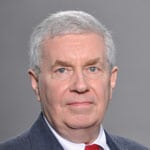
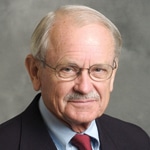
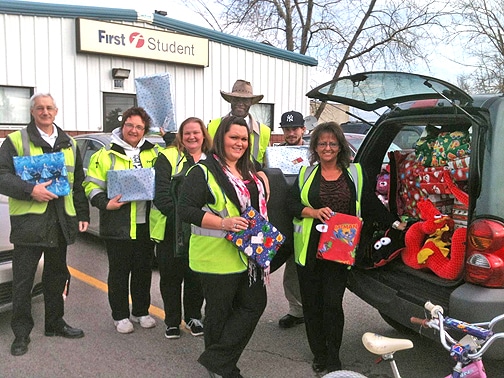
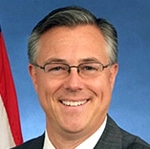

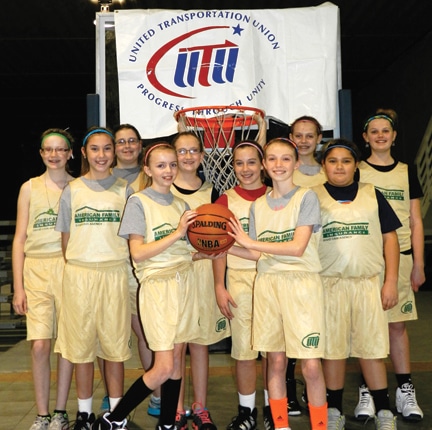

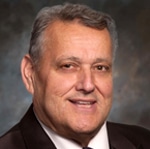
 Members planning to attend one or both of the UTU’s regional meetings this summer can now complete their registration online through the UTU website.
Members planning to attend one or both of the UTU’s regional meetings this summer can now complete their registration online through the UTU website.